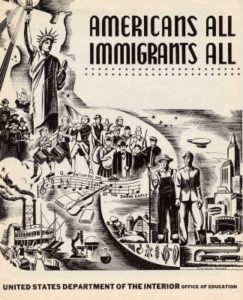President Donald Trump’s proposed 2018 budget eliminates funding for the Legal Services Corporation (LSC). In his first budget proposal released Thursday, Trump is cutting discretionary spending to pay for an increase in defense spending and the wall on the Mexican border, the Washington Post reports.
The LSC is among 19 agencies in line for total elimination of funding. Others agencies to be cut include the Corporation for Public Broadcasting and the National Endowment for the Arts, according to the Post and USA Today.
The American Bar Association is “outraged” that the Trump administration is calling to eliminate funding for the LSC and is calling upon members of Congress to restore it, ABA President Linda Klein said in a statement Thursday. Klein noted that LSC offices are in every congressional district and help 1.9 million people annually.
“Some of the worthy services the LSC provides include securing housing for veterans, protecting seniors from scams, delivering legal services to rural areas, protecting victims of domestic abuse and helping disaster survivors,” Klein wrote. “More than 30 cost-benefit studies all show that legal aid delivers far more in benefits than it costs,” Klein wrote. “If veterans become homeless, or disaster victims cannot rebuild, their costs to society are significantly more.”
Also supporting the LSC are the heads of more than 150 U.S. law firms, who told Trump in a letter that eliminating funding would hamper their ability to provide pro bono representation because they partner with legal aid groups receiving LSC funding.
“Eliminating the Legal Services Corp. will not only imperil the ability of civil legal aid organizations to serve Americans in need, it will also vastly diminish the private bar’s capacity to help these individuals,” the letter stated. “The pro bono activity facilitated by LSC funding is exactly the kind of public-private partnership the government should encourage, not eliminate.”
The LSC requested $502 million for fiscal year 2017 and received $385 million in appropriations for fiscal year 2016.
LSC President Jim Sandman remained optimistic about the outlook for the LSC in an interview with Bloomberg Big Law Business. He said he expected Congress to ignore Trump’s proposal and to grant the full $502 million funding request.
“We represent a fundamental American value—equal justice,” Sandman told Bloomberg. “That’s a value as old as the republic itself. Congress understands that.”
In an attempt to save the LSC, the American Bar Association is launching a grassroots campaign to engage constituents around the country to fight to save the LSC. Here is how it works:

- Go to www.DefendLegalAid.org to register as Legal Aid Defenders and show your support for legal aid organizations.
- Create a short message for our Members of Congress and submit your contact information to create a Legal Aid Defender card. The cards can be personalized by submitting a photo.
- The ABA will print and hand-deliver every card to members of Congress (three cards for each participant – a House Member and two Senators).
- The cards will be delivered by state delegations during ABA Day in Washington (April 25th – April 27th).
The King County Law Library is a proud provider of free legal aid services, as well as a partner with several pro bono legal aid organizations in King County. Eliminating funding for the LSC will have a direct impact on our ability to continue offering legal aid services. Please consider defending the funding of LSC. For more information about how you can help legal aid in addition to becoming a Legal Aid Defender, please go to www.HelpLegalAid.org.
Read the original version of this article here.


 The syllabus seeks to provide historical context to current debates over immigration reform, integration, and citizenship. The syllabus follows a chronological overview of U.S. immigration history, but it also includes thematic weeks that cover salient issues in political discourse today such as xenophobia, deportation policy, and border policing. Listing essential topics and readings and linking to historical documents and multimedia sources, #ImmigrationSyllabus helps answer important questions such as:
The syllabus seeks to provide historical context to current debates over immigration reform, integration, and citizenship. The syllabus follows a chronological overview of U.S. immigration history, but it also includes thematic weeks that cover salient issues in political discourse today such as xenophobia, deportation policy, and border policing. Listing essential topics and readings and linking to historical documents and multimedia sources, #ImmigrationSyllabus helps answer important questions such as:
 Supported by Open Society Foundations, the MacArthur Foundation and other donors, the civil legal aid organization Immigration Advocates Network started working on this project with the legal group Pro Bono Net about a year ago — before Trump even gained the Republican nomination for president.
Supported by Open Society Foundations, the MacArthur Foundation and other donors, the civil legal aid organization Immigration Advocates Network started working on this project with the legal group Pro Bono Net about a year ago — before Trump even gained the Republican nomination for president.